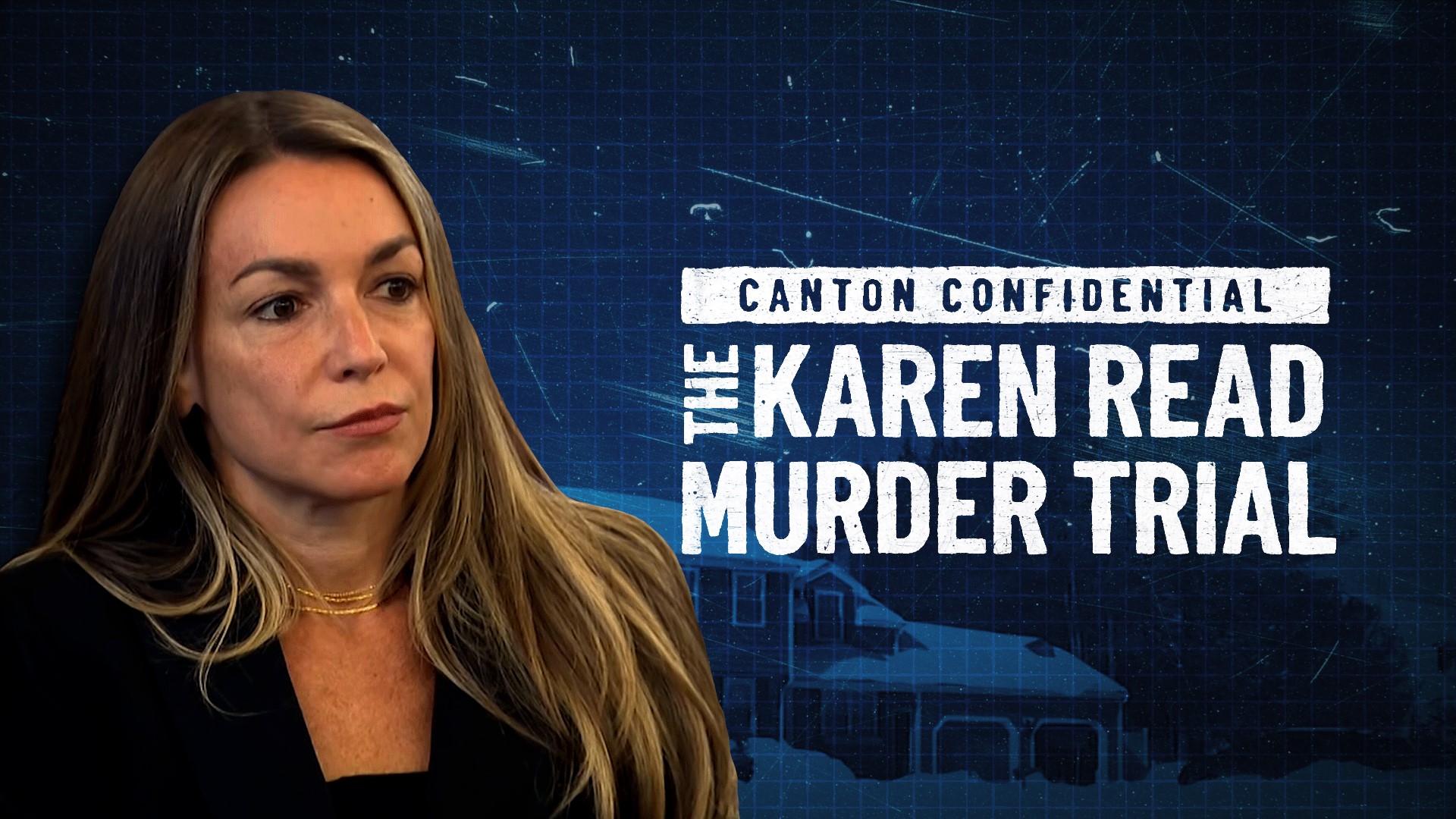As jury selection continues for the Karen Read retrial, we take a closer look at the process and what we’ve learned so far — 44% of the members of the jury pool said they’ve formed an opinion.
Legal experts Michael Coyne and Peter Elikann explain how the process is supposed to work, even in the face of major legal exposure, and how it sometimes doesn’t. Plus, we take some of your questions — you can email us at Canton.Confidential@nbcuni.com
Follow NBC10 Boston:
https://instagram.com/nbc10boston
https://tiktok.com/@nbc10boston
https://facebook.com/NBC10Boston
https://twitter.com/NBC10Boston
https://bsky.app/profile/nbcboston.com
The jury selection process for Karen Read's second murder trial continued on Wednesday, with dozens of potential jurors who could decide her fate in court among those being chosen.
Five jurors were selected Wednesday, following two on Tuesday. Of the seven total so far, four are men and three are women — no other information about the jurors is allowed to be released, to protect the identities of those who end up in the jury room.
WATCH ANYTIME FOR FREE
Stream NBC10 Boston news for free, 24/7, wherever you are. |
Watch Wednesday's edition of "Canton Confidential" above.
As the process unfolds, Karen Read sits in the courtroom with her defense team — including her newest attorney, Victoria George, who was an alternate juror in the first trial. They review the three-page jury questionnaire that jurors must answer before going to sidebar with the judge, the prosecution and defense.
Get updates on what's happening in Boston to your inbox. Sign up for our News Headlines newsletter.
Judge Beverly Cannone says she's not sure how long jury selection will last, though she notifies potential jurors that the lawyers estimate it will take six to eight weeks to present all the evidence.
"Jury selection, particularly in a highly publicized case, where you have hundreds of potential jurors, becomes a wildcard as to how long it's going to take," legal analyst Peter Elikann said.
The potential jurors were polled. Eighty-nine percent of them said they had heard about the case, 44% said they had formed an opinion and 16% said they had a bias either for or against Karen Read.
Legal experts said that even if someone has an opinion on the case, they can still be chosen if they remain impartial about what's presented in court.
"People have just been following this for 15 months. To then step into a courtroom, into a jury box, and say none of that has affected me, none of that has impacted my ability to be impartial, it's a tall order," legal analyst William Kickham said.
"It would be very hard to find a juror who isn't aware of the case," Elikann said. "The best you can do is try to find drawers who will listen to the evidence and keep an open mind."
On the way to court Wednesday morning, Read stopped to acknowledge shouts from supporters. They were being kept back because of an expanded buffer zone around Norfolk Superior Court in Dedham's town center, prompting a federal law suit filed by four people to get the zone lifted, saying it's a violation of their constitutional rights.
A hearing on the expanded buffer zone is set to take place Friday morning in federal court.

Audit into Canton Police Department released
According to the audit, Canton police never photographed the scene where John O'Keefe was found dead before he was moved by first responders. The audit also stated that Canton police should have stayed on scene until a state police team showed up to dig through the snow for evidence.
Other major mistakes outlined in the audit included not interviewing key witnesses separately at the station or preserving video evidence of Read's SUV parked in the sallyport.
According to former Massachusetts state trooper Todd McGhee, who now works as a security and law enforcement expert, some of the most basic fundamentals of police work were missing completely, and it appears the department lacks the means to be effective.
"The biggest thing for any law enforcement agency is having the training and the resources available to be a professional agency," McGhee said.
The group of independent investigators was commissioners in the first place because of the incredible frustration on the part of Canton taxpayers who heard details about their police department unravel during Read's first trial. Examples like using a leaf blower to search the scene where John O'Keefe was found, and using red solo cups and grocery bags to collect evidence at the scene.
The report also detailed a department suffering from low morale after months of criticism. The audit took three months, is 200 pages and cost $200,000.



